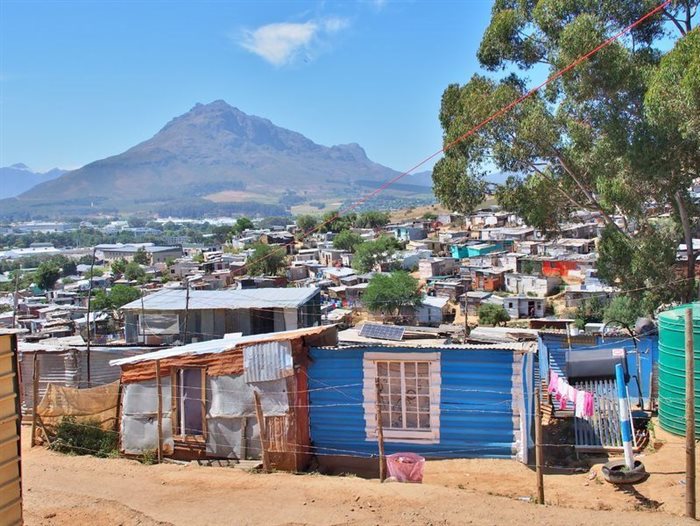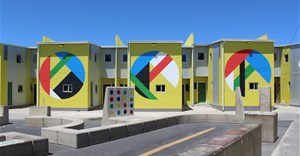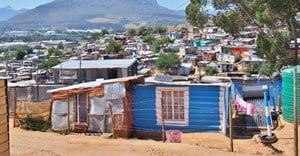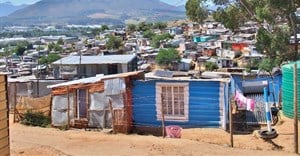Why proper participatory processes are vital when upgrading informal settlements

"Instead, it views participation as ceremonial and uses weaker, top-down forms of participation, such as informing residents of decisions that have already been taken,” says Mahomedy, a post-doctoral research fellow and lecturer at the South African Research Chair in Property Law in the Faculty of Law at Stellenbosch University (SU).
She recently received her PhD in Public Law at SU on the role of community participation in the upgrading of informal settlements.
Role of planning law
As part of her study, Mahomedy investigated the role of planning law in creating informal settlements during colonialism and apartheid, because various legal tools were used during these periods to deprive many South Africans of opportunities to participate in decisions that directly affected them. She examined various policies and programmes, legislation, and case law since 1994 to determine the extent to which they have made participation possible.
Mahomedy also compared the South African and Brazilian approaches to community participation in the context of upgrading informal settlements. The two countries have a similar socioeconomic climate and political history and share parallels regarding the patterns of informal settlement growth and the use of participation to address this.
According to Mahomedy, South African government officials ignore community participation when they implement policies and programmes that were developed after 1994 to deal with informal settlements. This happens even though participation is included in these policies and programmes.
“Unsurprisingly, poor living conditions and crime persist in many informal settlements and residents don’t have access to jobs, social amenities and basic services.”
Allowing communities to take ownership of projects
Mahomedy says residents' participation and interaction are generally much greater when their views are included from the start of a project – and in a real way that makes a difference.
“This make them feel that they are co-authors of the project and allows them to take ownership of the project and to help with the maintenance of upgrades.
“It’s important to point out that people living in informal settlements should not be seen as mere recipients or beneficiaries of upgrades; they have certain abilities and skills that should be considered in the planning process.”
Mahomedy suggests that constitutional values such as human dignity and equality, along with the inclusion of residents’ input, should form the foundation for participatory processes.
“Furthermore, participatory processes should be conducted in a language that residents understand, because English is often not their home language. This should be made clear in legal documents giving effect to upgrades as well as in practice.”
Mahomedy adds that government officials should receive training to ensure they are able to facilitate meaningful participatory processes and communities should be made aware of their rights and what they should expect from participatory processes.
“Government should receive stronger sanctions, including financial penalties, should they fail to properly facilitate meaningful participatory processes,” she says.
Lessons from Brazil
Since community participation in upgrade projects in our informal settlements remains a challenge, Mahomedy says the South African government can learn a thing or two from its Brazilian counterpart in how to include residents in participatory processes.
According to her, Brazil uses a holistic and integrated approach to participation which includes a social technical work (STW) component consisting of three pillars: mobilisation (participation), income generation, and sanitary and environmental education. An independent monitoring body oversees the STW component, while a permanent representative at the upgrade site maintains open discussions with the affected families.
“In South Africa, a similar approach could encourage more integrated responses to upgrade projects and enhance their sustainability. This could help address residents’ concerns about the lack of transparency and access to information and prevent confusion resulting from too many stakeholders communicating with residents.”
Monitoring and evaluation
Mahomedy adds that the Brazilian government allows for monitoring and evaluation throughout projects, as well as in the post-occupancy phase.
“While South Africa also makes provision for monitoring and evaluation as well as the need to ensure the maintenance of upgrades, Brazil goes a step further by allowing for a detailed evaluation of the participatory processes that took place.
“Currently, South Africa does not make provision for evaluating the participatory processes and instead only focuses on the physical improvements made.”
Mahomedy says in Brazil residents participate in workshops on previous successful upgrade projects and go on study tours of these areas, especially where there are similarities between the projects.
“These workshops could also be useful in South Africa and can help address the concern that residents may sometimes be unwilling to participate due to previous bad experiences with participatory processes, as it can assist with building trust.
“These workshops should encourage the involvement of different stakeholders such as community members, community-based organisations, local ward councillors and other government officials.”
Designing projects for the local context
Although South Africa can learn from the Brazilians, Mahomedy cautions against a one-size-fits-all approach to participation when upgrading informal settlements, because even Brazil experienced problems during participatory processes.
“It is important to design upgrading projects so that they suit the local context, which is where community participation plays a vital role.
“We need participatory planning so that we can find lasting solutions to social exclusion, empower people living in informal settlements, and achieve spatial justice,” she concludes.
















